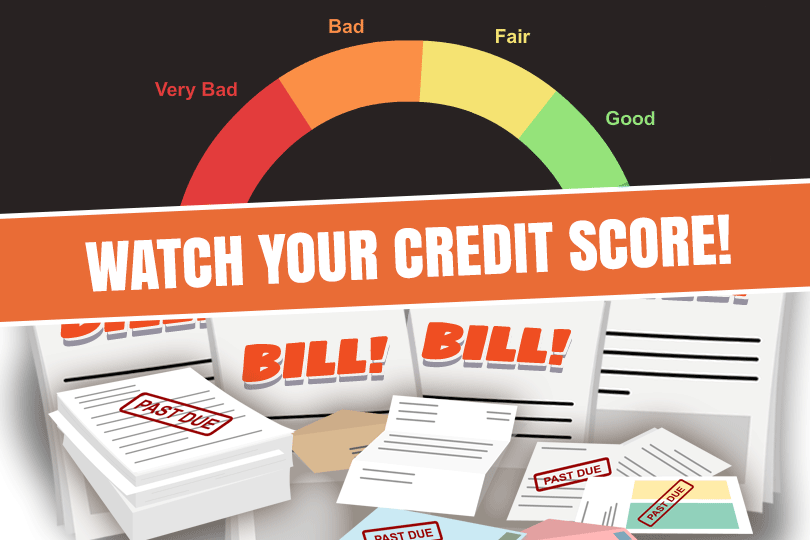What Your Credit Score Says About You
August 23, 2022
What is a Good Credit Score?
Think of your credit score like grades you get in school. A higher grade means that the work you turned in was on time and of higher quality. It measures your academic performance. Your credit score measures your creditworthiness, and you are graded bases on a number of factors, and credit bureaus calculate it on a scale between the range of 300 to 850.
The higher this score is, the more lenders will trust you. A high score represents a borrower who makes repays loans and makes his payments on time, making you less of a risk in the eyes of lenders, giving them more incentive to grant you credit with a lower interest rate.
What Goes into Your Credit Score?
One of the main credit scoring formulas used in the U.S. is the FICO score. All major credit bureaus in the U.S.—Equifax, Experian, and TransUnion—calculate credit scores using FICO's algorithm and information they have collected about people's credit history. It is based on five factors: timely payments (35%), total debt (30%), the age of credit (15%), new credit (10%), and the type of debt (10%). Let’s talk about each of the aspects.
Timely Payments: The first factor is easy enough to understand; to be considered creditworthy, you need to make payments on your loans on time. This can mean making your mortgage payment on time, and even your credit card balance.
Total Debt: Your total debt, which affects 30% of your score, is the amount of money you owe, relative to your credit limits. The more you owe, the riskier it is for you to take on new debt, lowering your credit score.
Age of Credit: Having a longer, more established credit history is advantageous because it gives lenders more information about your spending habits. A longer history of reliable borrowing means your score will be higher.
New Credit: This refers to lines of open credit. If a borrower has opened a number of new credit lines in a short amount of time, it indicates to lenders that they are having financial trouble and cannot manage their money well.
Type of Credit: This is especially helpful for new borrowers who don’t have a long credit history. It helps to have different types of credit lines because it shows lenders that you are able to handle various finances.
While it is good to know what goes into your score, you also need to know what doesn't affect your credit rating. While credit applications can affect the score, "soft" credit checks do not. The score is not based on sex, race, marital status, religion, nationality, or age. Information about where you live, your job, salary, or the interest rates on your credit accounts is not factored into the score either.
------------------------------
RELATED VIDEOS:
You're Almost There When You Get Your Loan Approval
Learn About the Mortgage Insurance Premium (MIP)
Pre-approval Starts the Mortgage Process

FHA Loan Articles
January 27, 2023Before you get ready to commit to a home loan application, it’s good to review your circumstances and ask a few basic questions about your loan, your plans, and the home itself. Believe it or not, knowing what type of home loan you need is an important step.
January 10, 2023When getting ready to shop for a home loan, it's worth taking a look at your credit report. Your credit score is a big factor when lenders take a look at your loan application, and it plays a huge role in the interest rate you get.
December 23, 2022When it comes to buying a house, saving up for a down payment can be one of the most overwhelming aspects. While down payments are one of the biggest obstacles for many in the mortgage process, it helps to understand the ins and outs of why they play such a big role.
November 30, 2022Buying and financing a home is complicated and can become overwhelming. It's important for you to stay informed, and know what your options are. So, start with the basics and read about the four different mortgage types available before approaching a lender.
November 8, 2022The fact is that repairs and renovations to your home cost a lot of money. Luckily, the FHA has an option for those with fixer-uppers on their hands. The FHA 203(k) Rehabilitation Mortgages allows borrowers to finance the funds for renovations to a home.







